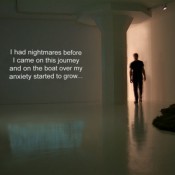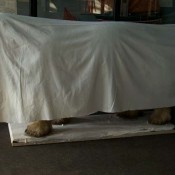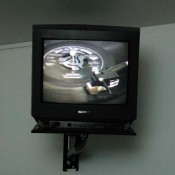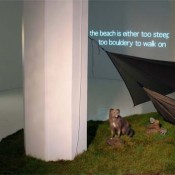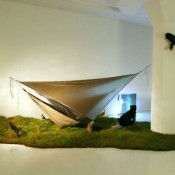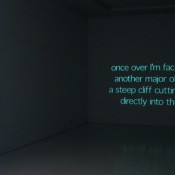Ghost Road Tasmania
Though we may start by looking at something, we soon have to realize that we are looking for something – that we are in fact searching for a way of experiencing that which is presented to us.
Paradoxically, we tend to allow those things that are most familiar to remain outside of us, precisely because we know them so well that we need no reassurance of their identity. Its when regarding things that are unfamiliar that we need to find the inner resources that might allow us to make some sense of them we construct metaphors to describe something for which we have no words. Often these metaphors are adopted into our language, and we forget that they’re metaphors.
Artists have a difficult time in relation to the metaphorical. We attempt to find or construct metaphors, because we want to refer to things without naming them. But as soon as we do find them we resent their efficacy, because once the metaphor has been found the object loses its mystery and ceases to be worth searching for.
Artists often talk about the search in terms of the process its the process thats important, the object is simply that, an object that has resulted from the process of the work. But how can one genuinely search without trying to find, or engage in a process without hoping for a result? One might borrow the strategies of the anthropologist: keeping ones distance; shrouding the discovery. Or one might try to maintain the innocence necessary to stay within the present tense; to remain within the voice of the present tense focused in the moment and not on the object.
What is sought may not be the material object of the search, the unfamiliar object, but the internal space that is accessed through the act of searching and the engagement with the unknown. In The Space of Literature Maurice Blanchot talks of [making] of the work a road toward inspiration and not of inspiration a road toward the work. We are advised then not to seek in order to find, but to use the possibility of finding, even the inevitability of finding, as an impetus towards searching.
Essay for lullabies catalogue by Professor Juan Cruz, Royal College of Art, London
Exhibited: Reykjavík Art Museum (2003)
